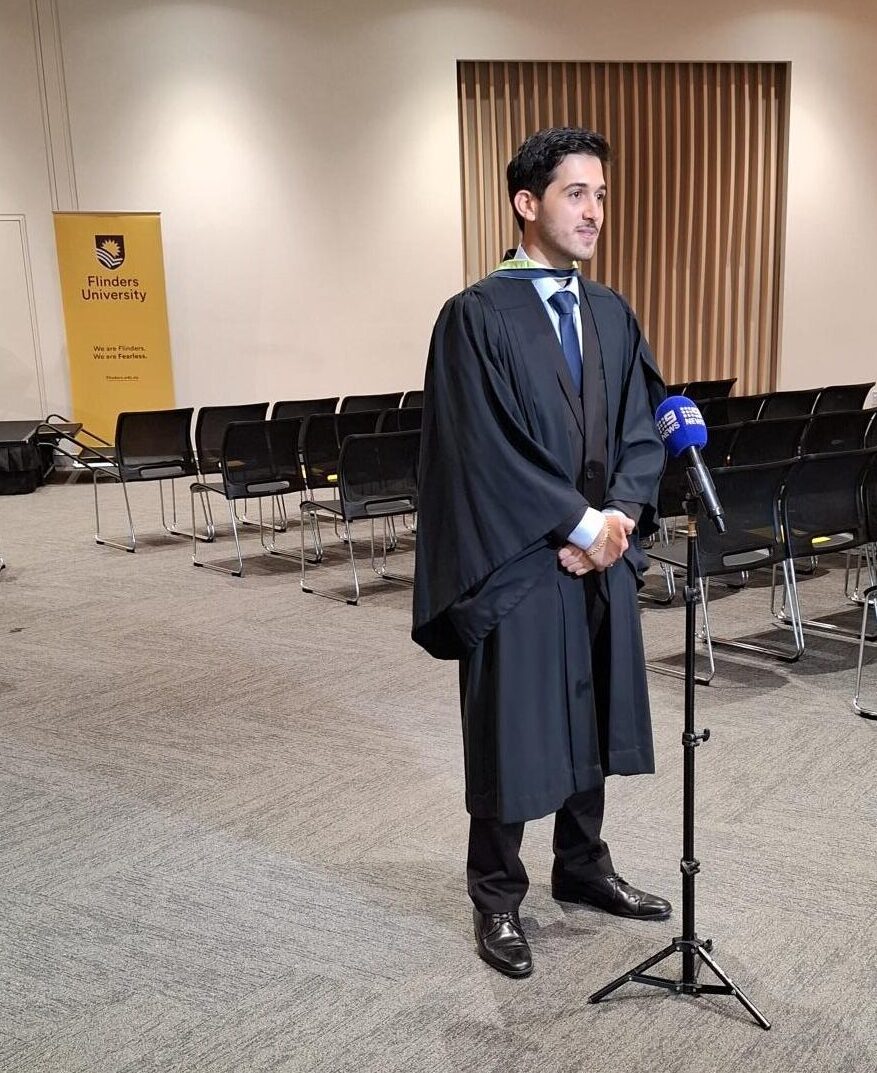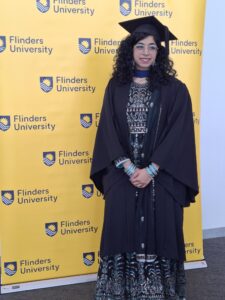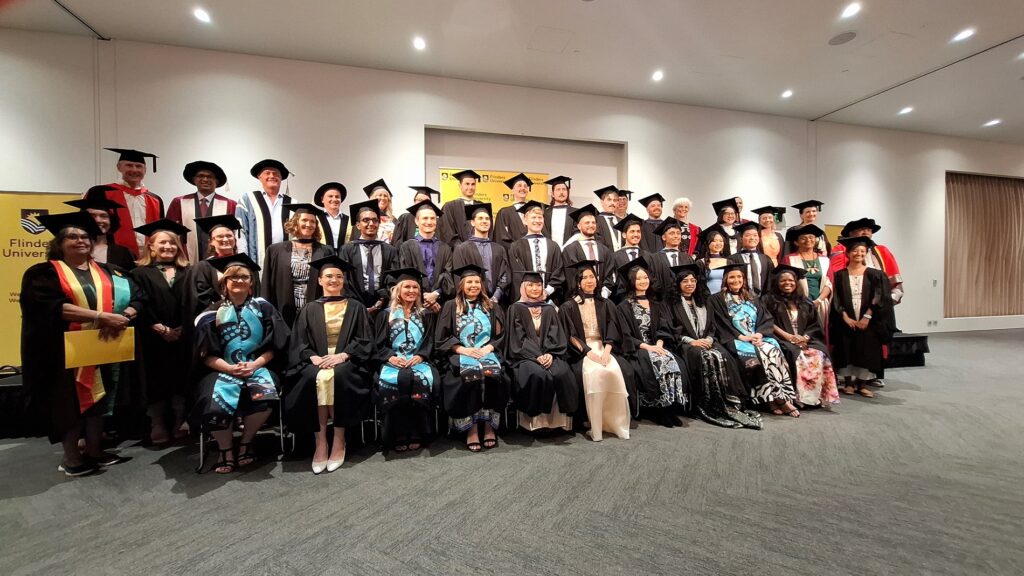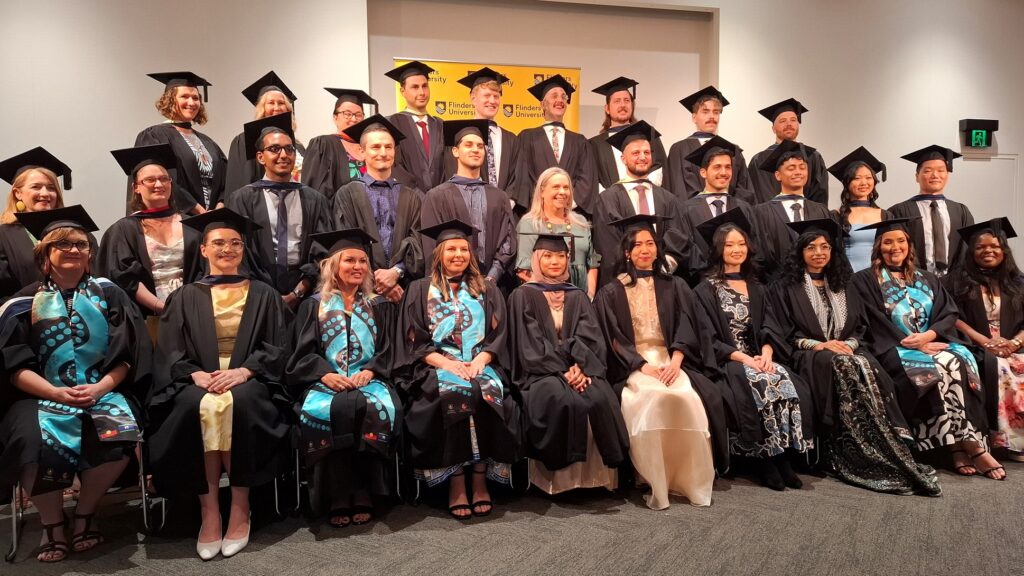
Flinders University continues to deliver the medical workforce that the Territory so desperately needs, with over 60 per cent of our NT graduates staying to serve their communities.
This year, 21 new graduates – including three Indigenous graduates – will receive their Doctor of Medicine (MD) degrees on Tuesday 10 December at the Darwin Convention Centre, marking a milestone in the Northern Territory Medical Program.
For more than a decade, Flinders University’s Northern Territory Medical Program has been expanding as the only Australian Medical Council-accredited medical program offered entirely in the NT.

Vice-Chancellor Professor Colin Stirling said Flinders University has maintained an enduring presence in the Territory, as the University graduates its 229th medical graduate.
“Our medical program delivers hands-on training tailored to the unique environments of the Territory, where our students gain experience from Darwin, to Nhulunbuy, Katherine, Tennant Creek, Alice Springs, and remote homelands, working alongside Traditional Owners and community leaders to deliver meaningful healthcare,” Professor Stirling said.
“With the vast majority of our graduates continuing to live and work in the Territory, this ceremony is not just about celebrating our 11th cohort of graduating students; it’s about securing the workforce needed to provide high-quality, accessible and culturally appropriate healthcare to all Territorians.”
The four-year Flinders MD program is taught entirely in the NT in a unique collaboration between the Northern Territory Government and the Federal Government, and in partnership with Charles Darwin University.

The program prioritises NT residents, and Aboriginal and Torres Strait Islander applicants, with over 60 per cent of graduates remaining in the Territory beyond their two-year return of service. Graduates also make up 50 per cent of General Practice Registrar trainees in the NT.
One of our standout graduates this year is Alex Joukovski, who spent eight years as a nurse before pursuing medicine in 2020.
“Flinders in Darwin was my first choice, as it meant I wouldn’t have to leave the NT,” said Mr Joukovski, a husband and father, who begins his internship at Royal Darwin Hospital in January 2025.
Indigenous students are particularly supported through the Indigenous Pathways to Medicine program, which provides academic and pastoral assistance.
“Our Territory-based training is transformative. It combines the resources of a major institution with the intimacy and resilience of close-knit communities, to deliver a healthcare workforce tailored to the NT’s unique needs,” said Professor Robyn Aitken, Flinders’ Dean, Rural and Remote Health.
“Today, we celebrate not just the achievements of our graduates but the hope they represent for communities across the NT.”
A total of 29 Flinders students will graduate from Doctor of Medicine, Bachelor of Paramedicine, Public Health and other degrees at the Darwin ceremony.



